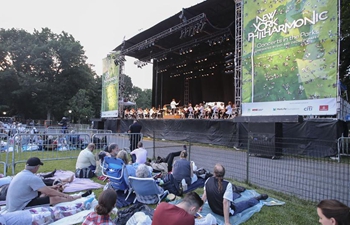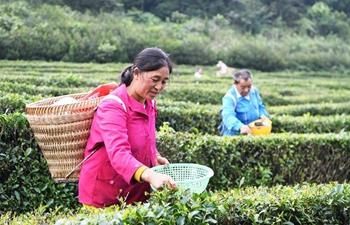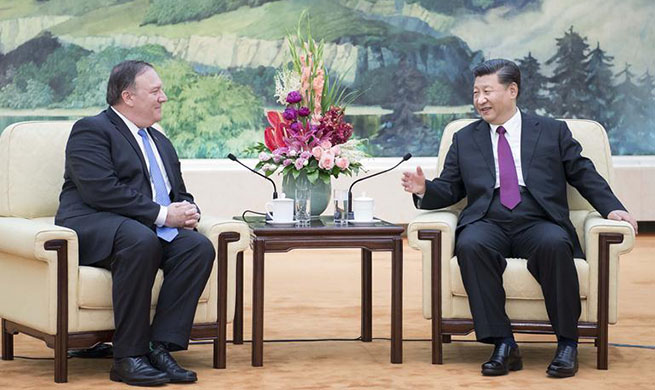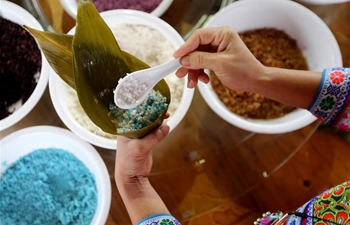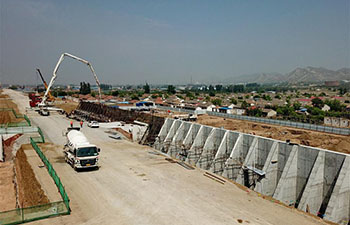MEXICO CITY, June 14 (Xinhua) -- Nearly 11,000 kilometers from home, Russian-born Anya Shevtsova cheered as she watched her national team on television as they won the opening game of the 2018 FIFA World Cup on Thursday.
Though Anya and her Mexican boyfriend Luis Merino live in Mexico City, far from the crowds going wild at Moscow's Luzhniki Stadium as hosts Russia trounced Saudi Arabia 5-0, they were surrounded by dozens of enthusiastic fans, among whom were several Russians.
The pair had decided to watch the inaugural game at Kolobok, a Russian restaurant in the capital's traditional Santa Maria la Ribera neighborhood, where beet soup, meat turnovers and other Russian favorites are staple fare.
"I am surprised by our players because I didn't have much faith, but they played well and I am in a restaurant where I can eat my own kind of food. It feels good," said Anya, who has been living here for two years and works at a language school.
Luis, who works for an airline, said they wanted to experience the first game in a Russian setting, and chose one of the handful of Russian restaurants that there are in the city.
The small restaurant prepared for the event by decking the interior with the flags of the 32 national teams competing in football's leading global tournament.
Jose Luis Hernandez, a retired phone company employee, got into the spirit of the games by donning a "shapka," the traditional Russian fur cap with ear flaps, which he bought at a recent international fair the city hosts once a year.
"One hopes that the optimism one feels will spread to everyone," said Hernandez, 70, as he sat with his son.
World Cup fever has recently drawn more business to Kolobok, which the Leonov family opened in 2002, after emigrating to Mexico. Today, the cozy eatery serves as a meeting point for Mexico's Russian expat community, according to the manager, Gloria Rodriguez.
"There has been a lot of curiosity because of the World Cup. People have been calling us to find out about our hours and whether we are offering discounts during the games," said Rodriguez.
Though Kolobok holds a special attraction due to its Russian connection, restaurants throughout the city fill to the rafters during the World Cup, as Mexicans flock to see the games with friends and family.
Mexico's national restaurant chamber Canirac expects daily sales during the World Cup to reach some 600 million pesos (28.7 million U.S. dollars) nationwide, 10 percent more than average.
Aside from football, the World Cup offers an opportunity to explore different ways of life.
"I really like that it is being held in a country that is so different, a culture that's very different, and that we can now learn a lot about with everything they are broadcasting from Russia," said Adrian Hernandez, who was there watching the games with his wife and two children.
For Anya, 23, the World Cup is a good opportunity to familiarize Mexicans with her culture, just as she slowly discovered theirs through Luis, whom she met in Finland.
"I'm sure that the people who went to the World Cup are going to like my country quite a lot ... what most interests me is for people to learn more and enjoy this moment," said Anya.








